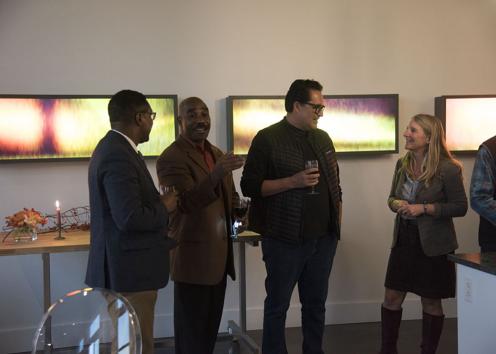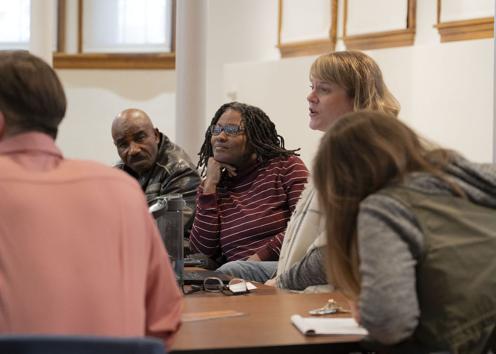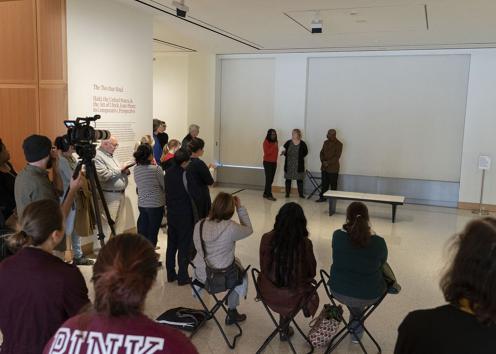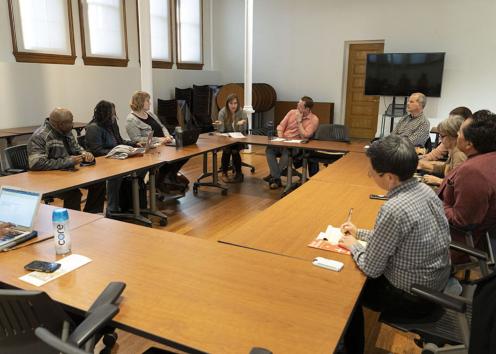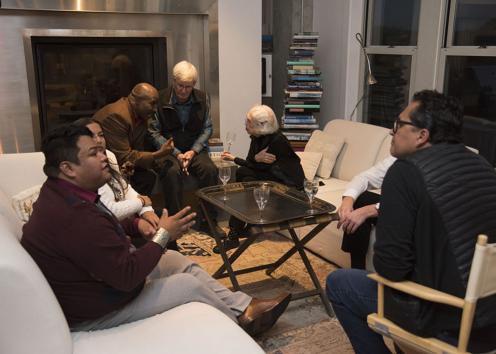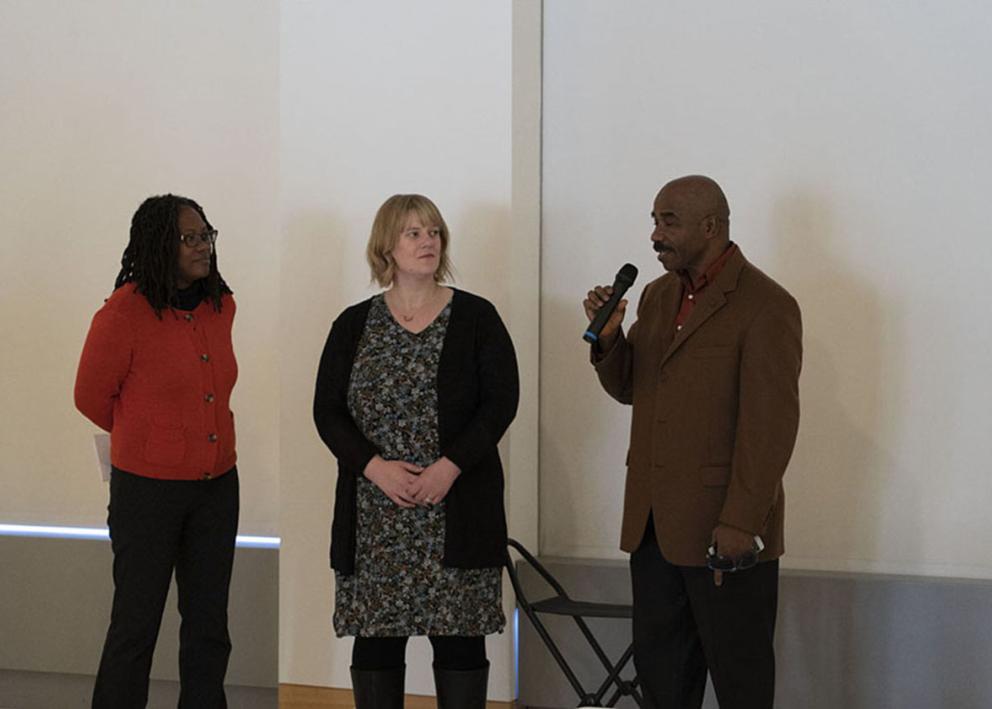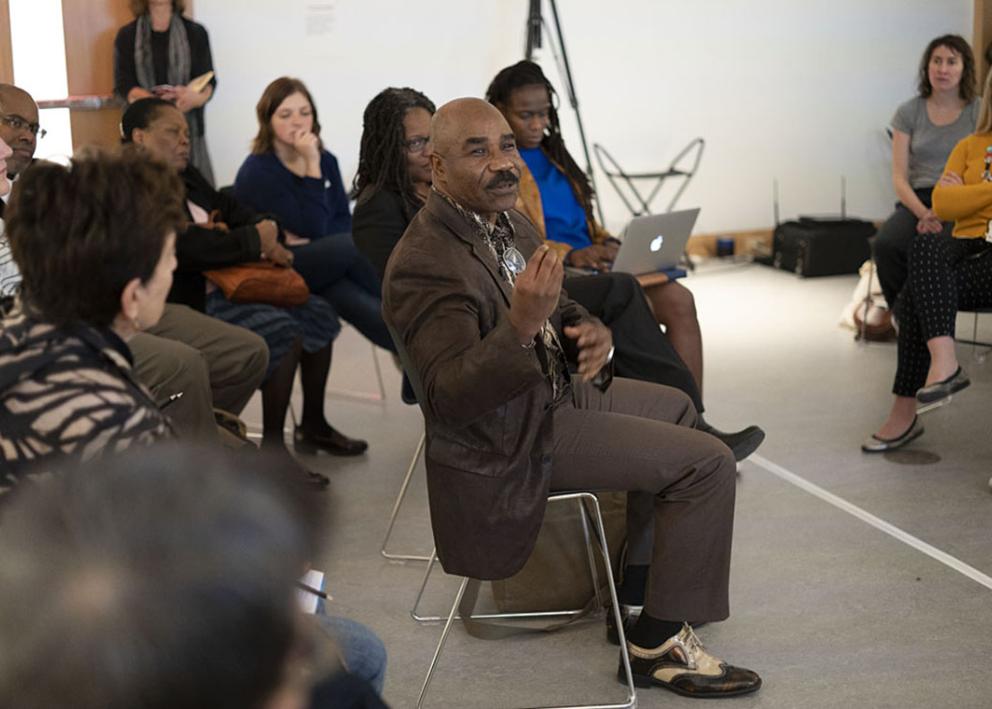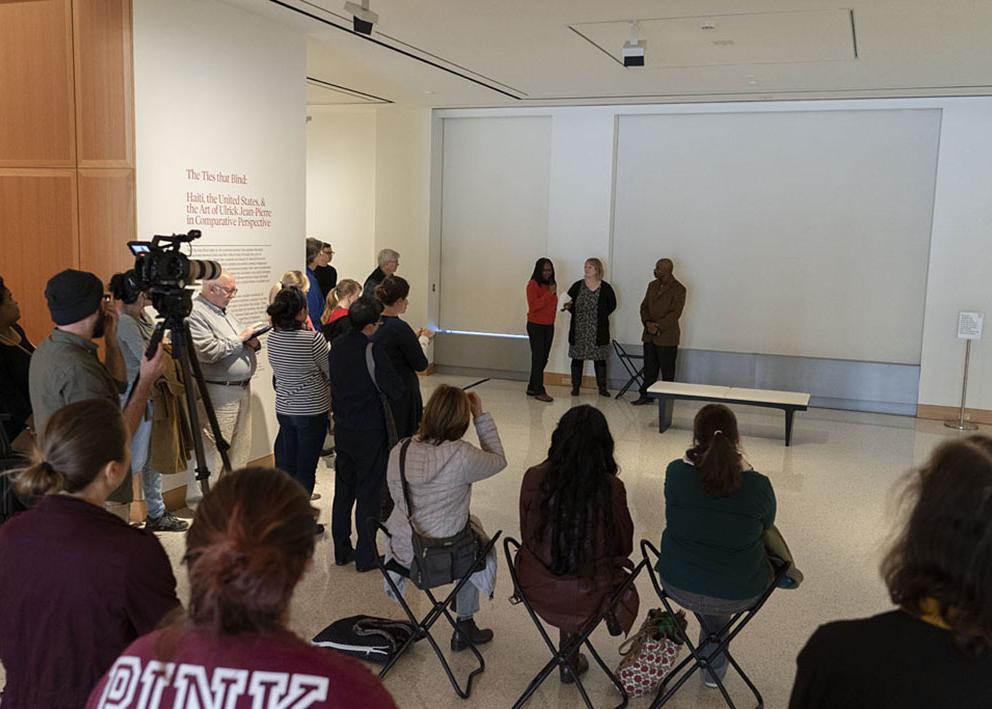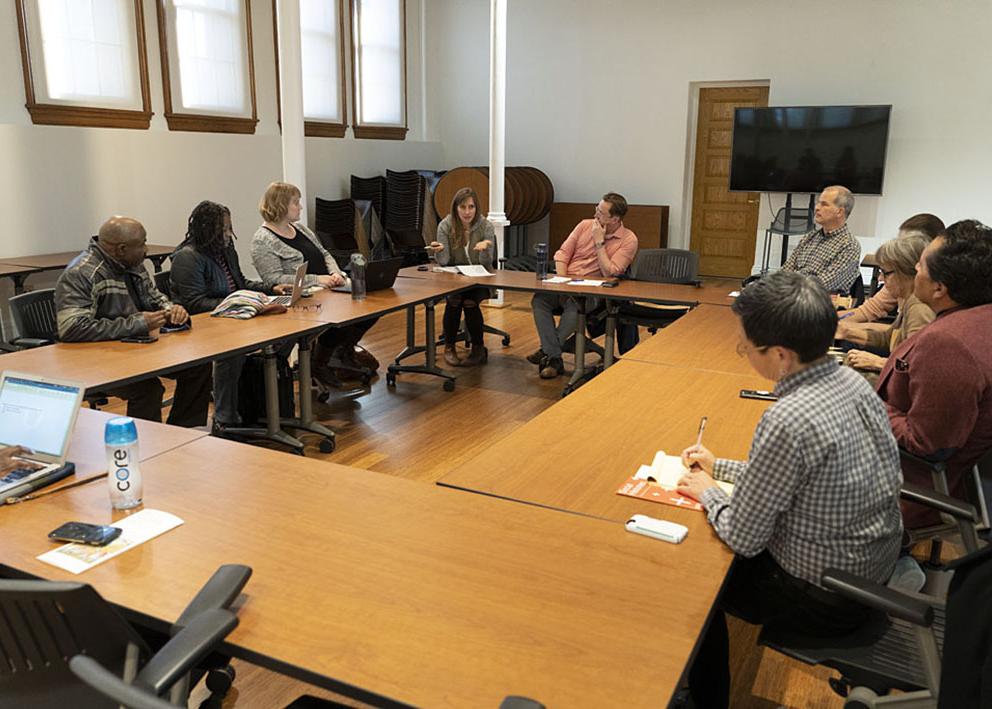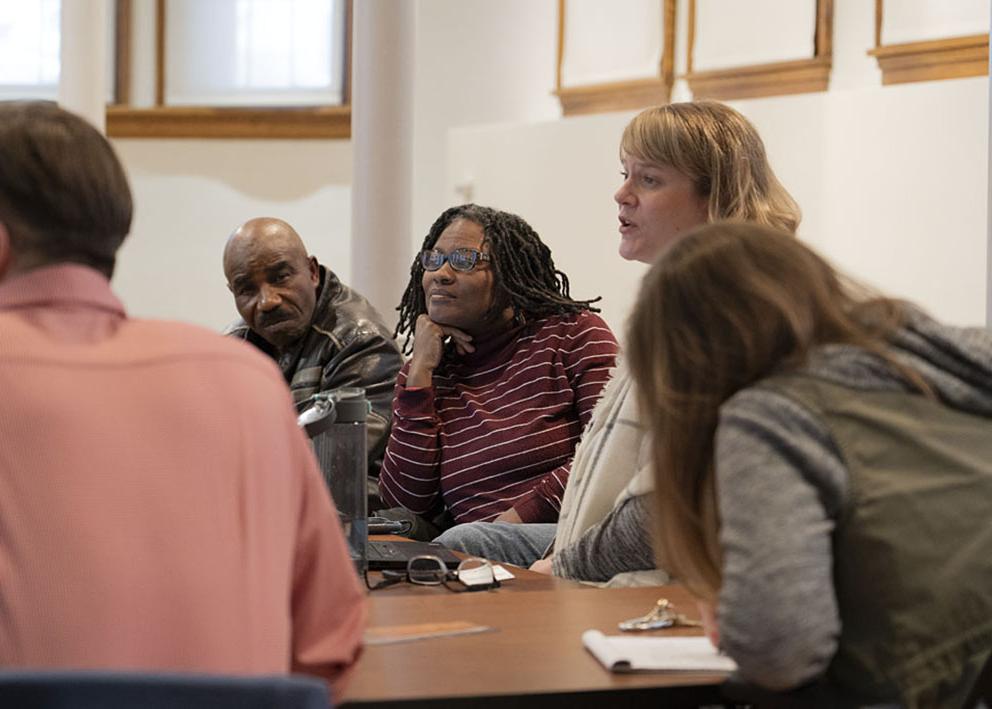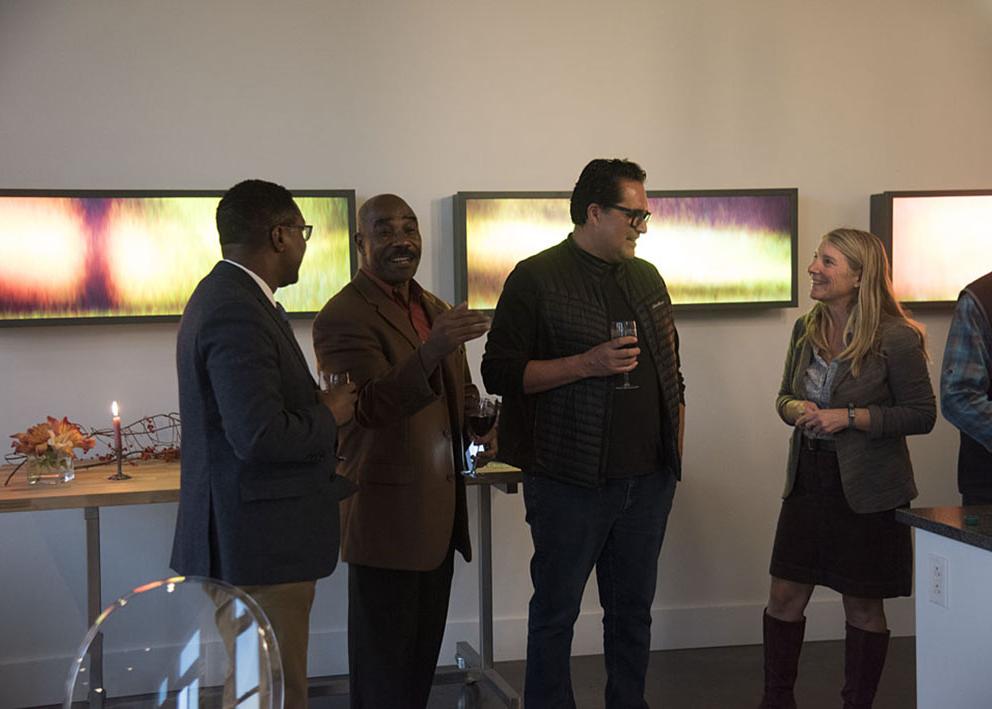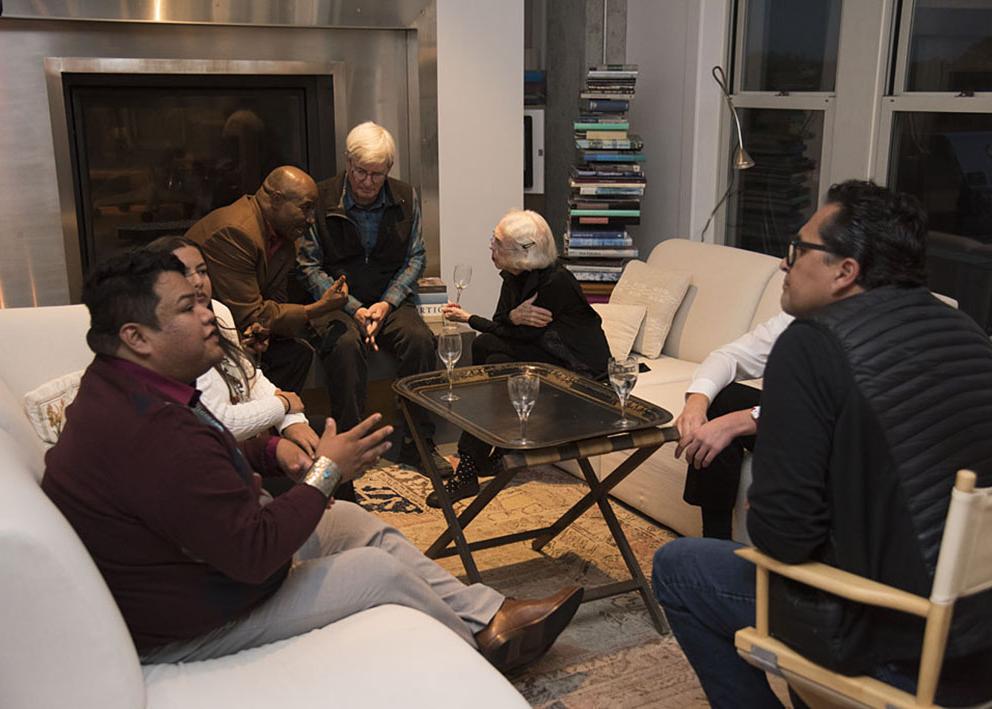Social Histories

The Integrated Arts Research Initiative Fall 2018 Inquiry
Ulrick Jean-Pierre speaking as part of the Social Histories inquiry, 2018. Photograph by Ryan Waggoner © Spencer Museum of Art, The University of Kansas.Launching the Integrated Arts Research Initiative
Launched in 2016, the Integrated Arts Research Initiative (IARI) at the Spencer Museum of Art rethinks the academic art museum as an active participant in the research culture of the University of Kansas by advancing interdisciplinary projects across the humanities and sciences. Directed by Spencer Museum of Art Curator for Research Joey Orr and generously supported by the Andrew W. Mellon Foundation, IARI positions the Spencer Museum as a hub for collaborative, transdisciplinary research. In addition to offering fellowships for faculty, students, visiting scholars, and creative specialists, IARI also provides a variety of platforms for engaging ideas and encouraging transformative dialogue. IARI was instrumental in supporting many of the components described in Encountering Haiti. For instance, Cécile Accilien and Tyler Allen served as the Fall 2017 IARI Faculty and Undergraduate Research Fellows, respectively. These awards allowed them to conduct research on Haitian art and complete a studio visit with Haitian painter Ulrick Jean-Pierre, which directly supported the Spencer Museum of Art’s exhibition The Ties that Bind.
Rethinking art’s role in the research culture at the University of Kansas
While IARI often supports exhibitions, it also seeks to unsettle the ways that they dominate arts-centered pedagogy and engagement by hosting an annual inquiry—a cloud of activities that invites diverse voices to coalesce around a broad theme. The Fall 2018 IARI inquiry connected the theme of “social histories” with three exhibitions then on view at the Spencer Museum of Art: The Ties that Bind, Larry Schwarm: Kansas Farmers and Passage. Between October 16-20, a series of presentations, performances, roundtables, and other informal events gave four artists opportunities to share and reflect on the ways that their own work and artistic practice engaged social history. The invited artists were Haitian-born, New Orleans based painter Ulrick Jean-Pierre, who participated in a conversation about the work of social history in his art and whose work featured prominently in The Ties that Bind; Siksika artist Adrian Stimson, who presented “Resistance is Futile,” a performance of his Two-Spirit persona Buffalo Boy; Tina Takemota, who offered an experimental lecture that explored queer social histories among queer Japanese Americans; and Rena Detrixhe, who installed a version from her Red Dirt Rug series.
Reflecting on the inquiry, Joey Orr and Imani Wadud note that through “exhibition, performance, and dialogue, we encountered social histories as living in the sense that their impacts on the present are still very much in flux, constantly co-configuring one another.” [1] Framing and contextualizing an exhibition like The Ties that Bind—which focuses on historical events in ways that invite discussion of current events—provided an important lens for understanding not only Haitian history but also the role that art and artistic research play in shaping the narratives that are told about Haiti today.
[1] Joey Orr and Imani Wadud, “Social Histories: An Inquiry from the Integrated Arts Research Initiative,” art journal OPEN (April 19, 2018).
